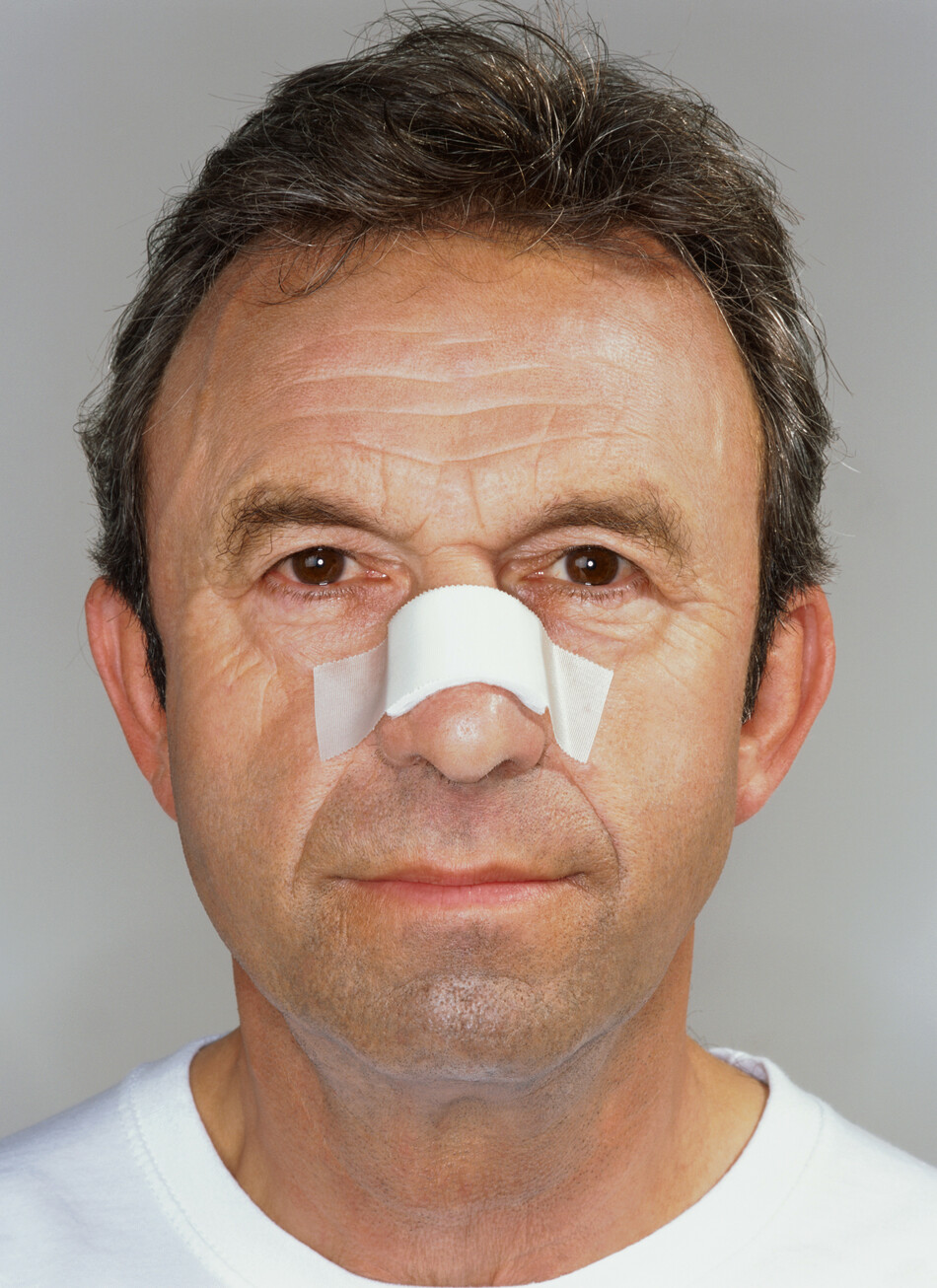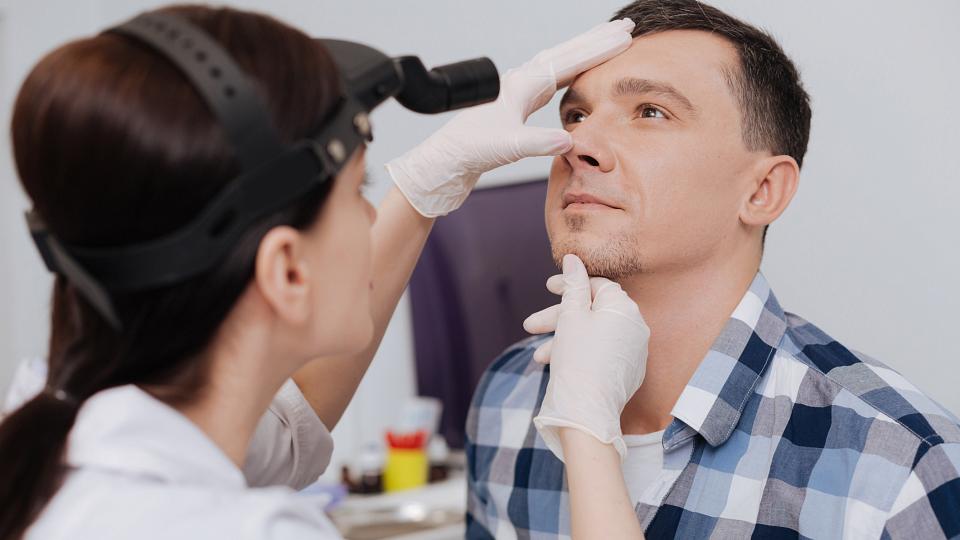
Interviewer: So you've decided to get a rhinoplasty. How long can you expect to see the results that you were hoping for?
Announcer: Health information from experts supported by research. From University of Utah Health, this is thescoperadio.com.
A Rhinoplasty Walkthrough
Interviewer: I'm here with Dr. Cori Agarwal. She is an associate professor of plastic surgery at the University of Utah Health. So, Dr. Agarwal, what can I expect right after surgery when I get my rhinoplasty?
Dr. Agarwal: So rhinoplasty is an outpatient surgery. And depending on how complex it is and all of the work that you're planning on getting, it can take a couple of hours under general anesthesia typically, and you would go home after that surgery the same day. Right after the surgery, you're going to have some bandages on and a splint on the outside of your nose that's going to be taped onto your cheek, sometimes taped onto your forehead. You may have some blood dripping from the nostrils and a gauze under there. So right after the surgery, you're not going to be looking your best. You'll go home and the main thing for the first couple of days is really to just take it easy and let things heal so that there isn't any bleeding or complications.
Interviewer: After the first few days, do the bandages come off? What's after those first few days?
Dr. Agarwal: So it depends a bit on how much work is done. If there's work done on the bones to narrow the nose or just on the soft tissues, so that'll vary a little bit. But, in general, I think, as a rule, most patients after rhinoplasty have a splint or a bandage on their nose for one week. So that's one week having a little cast on the outside of your nose where you're probably not going to want to be going out and doing a lot of social events. You want that splint to stay stuck on, so you don't want a lot of moisture on it. So that first week, I don't recommend making any plans.
Ways to Manage Swelling
Interviewer: So I assume there's going to be some swelling, and I assume there's going to be some discomfort. Is there anything during that first week or so that patients can do to kind of help speed up their recovery at all?
Dr. Agarwal: To minimize swelling, keeping your head elevated can help. And so what I ask patient to do, when they go home, is to get themselves kind of a nest to sleep in, where they have a few extra pillows behind their back or sleep in a recliner. Because when you lay flat, the swelling increases and you can . . . it's a little bit better if you keep your head elevated for those first couple of days while you go through the peak swelling time period.
Rhinoplasty Recovery
Interviewer: And what about after those first few weeks? When does that splint finally come off?
Dr. Agarwal: So normally, between five and seven days, you'll go in for your follow-up visit with your surgeon, and they'll take the splint off, take out any stitches that need to come out. And at that point, you're going to be a lot more presentable. You will have still some swelling and possibly some bruising. You can have some bruising under your eyes sometimes, so you may need to put on some cover-up. But at that point, after one week, you can usually go back to work as long as you're not doing anything very strenuous or heavy lifting.
Interviewer: So once they take the splint off, is it just you're ready to go, like these are the results you wanted, or my understanding is that it takes a while?
Residual Swelling
Dr. Agarwal: Yeah. That's the thing that people don't always understand. And I really try to emphasize before the surgery to set the expectations. But the nose holds onto swelling longer than other parts of the body. And it's also right there in the front of your face. And so even a tiny bit of swelling you're going to recognize.
And so, usually, you're not going to look terrible after one week. But after a couple of weeks go by, the swelling is going to be very subtle to where mostly you're going to be noticing it or maybe some close friends or family would notice it. But it'll be a very small amount of swelling left after about three weeks. But that last bit of swelling, that last little bit takes about a year to go away. And so if you're looking for kind of that final best results of your nose, you have to be pretty patient.
Interviewer: A whole year? It's that last little bit of swelling. Why does the nose hold onto the swelling for so long?
Dr. Agarwal: That's just that the nature of the skin particularly on the tip of the nose can get boggy. Again, it's a very small amount of swelling, and it may not be too noticeable to the world. But when you're looking for your final result, it just takes that amount of time to see that final result.
Interviewer: So for patients that want to get a rhinoplasty, what's the one thing you would make sure to tell them to make sure that their expectations are where they need to be and that they'll be happy with the results?
Dr. Agarwal: So I think after the surgery, it's really important to make sure that you have . . . for the first week or so, you're in a healing period to make sure that you've set aside time off of work and that you have friends and family to help you out. And you'll slowly get back to normal between the first and third week. I think you're going to be feeling like yourself and you're going to be really happy with your new nose. And you do need to remember though that it may take a few months or even up to a year before you have your final result that you've been looking for.
Announcer: Have a question about a medical procedure? Want to learn more about a health condition? With over 2,000 interviews with our physicians and specialists, there's a pretty good chance you'll find what you want to know. Check it out at thescoperadio.com.

